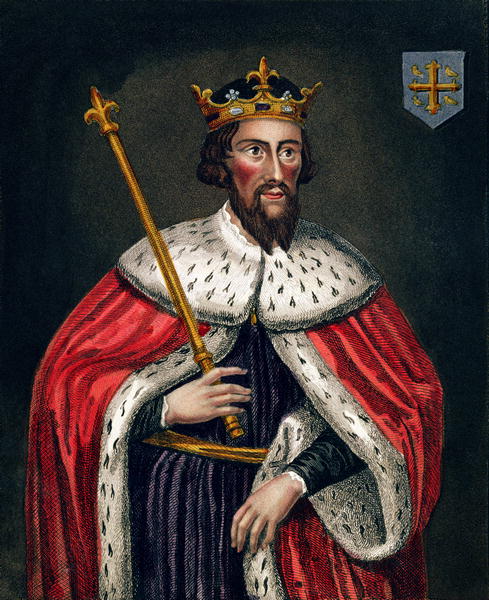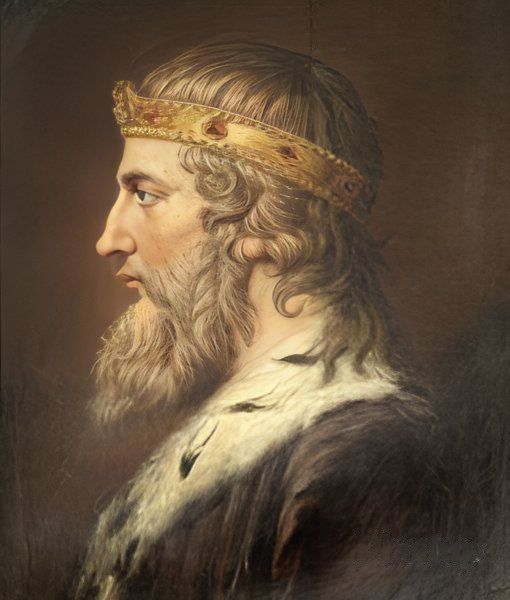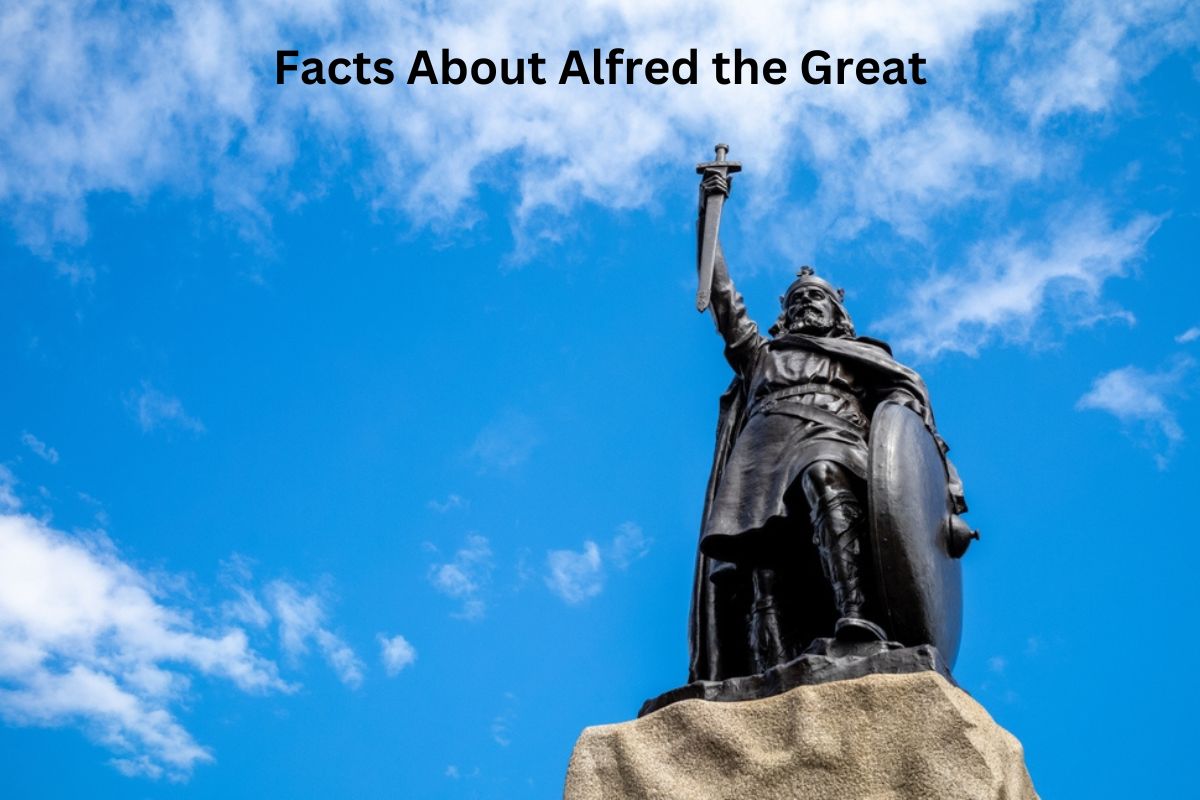Alfred the Great, who reigned from 871 to 899 AD, was a significant figure during the Viking invasions of England.
His key achievements include winning the Battle of Edington in 878 AD and establishing fortified towns for defense.
He earned the nickname “the Education King” for promoting education and translating Latin works into Old English.
He also initiated the Anglo-Saxon Chronicle, introduced legal reforms, and supported the Church.
Alfred’s legacy is characterized by his leadership during a turbulent time, which laid the groundwork for England’s unification and cultural progress.
Alfred the Great Facts
1. Born in 849 AD in Wantage, England
Alfred was born in 849 AD in Wantage, Oxfordshire, England. He was the youngest son of King Aethelwulf of Wessex.
This royal lineage placed him in a position to potentially inherit the throne of Wessex, although he was not initially the heir apparent due to his older brothers.

2. Faced Viking invasions during his reign
Alfred’s reign coincided with a period of intense Viking raids and invasions in England. These Viking incursions posed a grave threat to the Anglo-Saxon kingdoms, including Wessex, and the stability of the region was in jeopardy.
Alfred’s ability to confront and deal with this formidable external threat would come to define his legacy as a king.
3. Won the Battle of Edington in 878 AD
One of the most pivotal moments in Alfred’s reign occurred in 878 AD when he faced a formidable Viking army led by Guthrum.
Alfred’s forces engaged the Vikings in the Battle of Edington, a battle that took place near present-day Edington in Wiltshire. Alfred’s victory in this battle was a turning point in the struggle against Viking invaders.
It not only halted the immediate threat but also led to the Treaty of Wedmore, a significant agreement in which Guthrum agreed to convert to Christianity and established the Danelaw, a region in England under Viking control.
This treaty brought a period of relative peace to the region, giving Alfred some respite to further strengthen his kingdom.
4. Known as the “Education King”
Alfred’s reign is often celebrated for his commitment to education and culture. He earned the epithet “the Education King” due to his significant contributions in this area.
Recognizing the importance of knowledge, he initiated a program to translate important Latin works into Old English, the vernacular of his people.
This effort made previously inaccessible knowledge accessible to a broader audience and fostered a greater sense of cultural identity among the Anglo-Saxons.
5. Translated Latin works into Old English
Alfred’s personal involvement in the translation process is noteworthy. He undertook the translation of several works himself, including Pope Gregory the Great’s “Pastoral Care.”
This dedication to preserving and disseminating knowledge laid the groundwork for a more educated and informed society in Wessex.

6. Initiated the Anglo-Saxon Chronicle
During his reign, Alfred the Great played a pivotal role in the initiation of the Anglo-Saxon Chronicle, a historical record that provided a chronological account of events in England.
This Chronicle, composed of various entries over the centuries, helped document the history of the Anglo-Saxon people and the kingdom of Wessex.
Subsequent generations continued to contribute to and maintain this valuable historical record, making it a critical source for understanding early English history.
7. Introduced legal reforms and a new code of laws
Alfred’s contributions to governance extended to the realm of law. He introduced legal reforms that aimed to establish a fair and just legal system within his kingdom.
These reforms included the development of a new code of laws that promoted equity and consistency in legal proceedings. Alfred’s commitment to justice helped create a more stable and orderly society.
8. Established fortified towns called “burhs”
In response to the Viking threat, Alfred implemented significant military innovations. He established a network of fortified towns known as “burhs” (singular: “burh”).
These burhs served as strategic strongholds, providing both defensive and administrative functions.
They were strategically positioned to deter Viking raids and offer protection to the local population.
The burh system laid the groundwork for a more organized and resilient defense against Viking incursions. In times of danger, communities could seek refuge within these fortified towns.
9. Supported the Church and rebuilt churches
Alfred was a devout Christian, and he actively supported the Church. During the Viking raids, many churches and monasteries had been pillaged and destroyed. Alfred took it upon himself to rebuild these religious institutions.
His efforts not only restored places of worship but also contributed to the revitalization of religious life in his kingdom. This support for the Church helped strengthen its influence and moral authority within Wessex.
10. Died in 899 AD, succeeded by his son Edward the Elder
He passed away in 899 AD and was succeeded by his son, Edward the Elder. Edward continued his father’s policies and efforts, further consolidating and expanding the Kingdom of Wessex.
Alfred the Great’s reign left an enduring legacy. His leadership during a turbulent period in English history, marked by Viking invasions, is often celebrated for its resilience and adaptability. He successfully defended Wessex against Viking threats, laid the groundwork for the eventual unification of England, and promoted education, culture, and justice.
